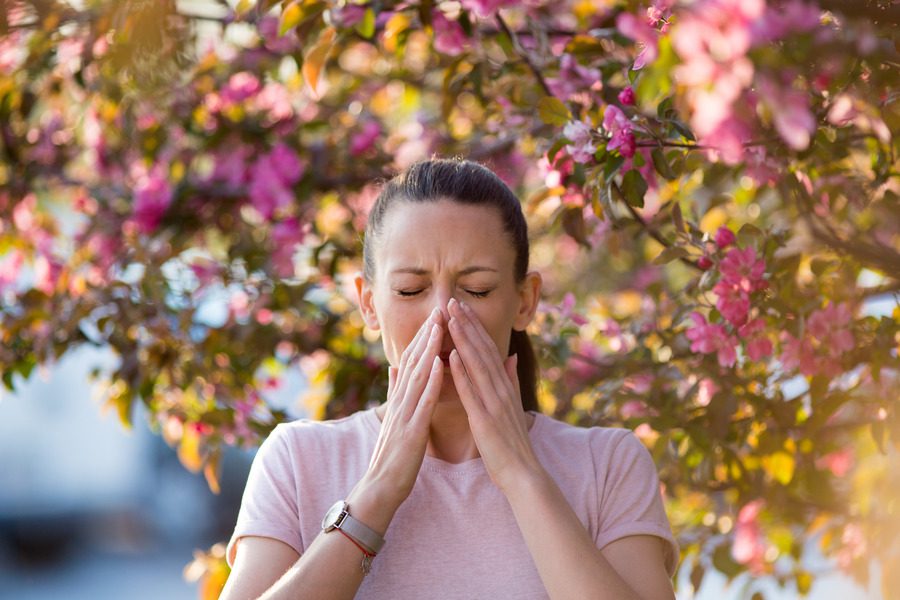Spring is such a beautiful time of year. However, with that beauty can come itchy eyes, sneezing, and sniffling caused by seasonal allergies or hay fever. In this post, we’ll discuss some strategies for dealing with seasonal allergies.
What Is Hay Fever?
During spring, the air becomes a symphony of allergens due to airborne mold spores and pollen from various sources (tree pollen is the biggest culprit in early spring). Hay fever, also known as allergic rhinitis, develops when the body’s immune system identifies and overreacts to these allergens.
How to Avoid Triggers
While hay fever isn’t completely avoidable, there are ways to lower the chances of unwanted symptoms.
- Wear sunglasses or glasses to avoid getting pollen in your eyes.
- Change your clothes after being outside.
- Keep your windows closed.
- Vacuum regularly.
- Use Vaseline around your nose to block pollen.
Coping with the Symptoms
Hay fever symptoms include sneezing, coughing, watery or itchy eyes, earaches, and headaches. Alleviate your symptoms with the following.
- Antihistamines: OTC medications, such as Benadryl, Claritin, and Zyrtec, block the effects of histamine, a chemical your immune system releases during an allergic reaction. Note: Some antihistamines may cause drowsiness.
- Nasal Sprays: Decongestant sprays help shrink swollen blood vessels in the nose that promote congestion.
- Antihistamine sprays work to reduce itching, congestion, watery eyes, and sneezing. Expect less drowsiness than oral antihistamines, although it is still a potential side effect.
- Prescription nasal sprays typically feature steroids that, like antihistamine nasal sprays, reduce sneezing, congestion, watery eyes, and itching. It can take up to a week to notice improvement.
- Eye Drops: Allergy eye drops help tackle allergic reactions such as swollen, bloodshot, itchy, and burning eyes.
If you are experiencing hay fever or seasonal allergies, contact your doctor or allergist, who can recommend the best treatment methods for your symptoms.






